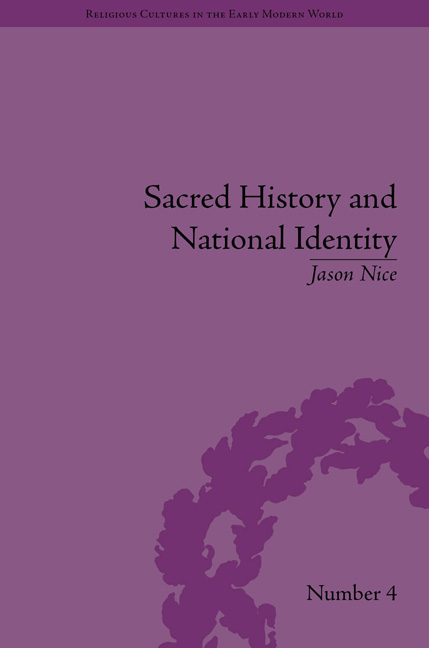Preface
Summary
O Shows! Shows! Mighty Shows!
The Eloquence of Masques! What need of prose
Or Verse, or Sense t'express the Immortal you?
You are the Spectacles of State!
Ben Jonson, ‘Expostulation with Inigo Jones’ (1631)
On Michealmas Night 1634, a medley of anxious gentry and nobility gathered in the Welsh marches to witness the performance of John Milton's A Maske Presented at Ludlow Castle, which he composed to celebrate the recent installation of Sir John Egerton, Earl of Bridgewater, as Lord President of the Council in the Marches of Wales. The audience departed that night without any overwhelming sense of Welsh sacred history, let alone national identity, but their experience must have confirmed a geographical sense of ‘Wales’ rooted in local religious traditions. In short, the Maske (known also as Comus), offered a stirring defence of the earl's presidency over Wales and the English Marcher shires of Shropshire, Gloucestershire, Herefordshire and Worcestershire. By the 1630s, the Council in the Marches had come under attack from the English gentry of these four counties who preferred to litigate in London, and from ecclesiastical courts that denied the Council's jurisdiction over crimes of sexual immorality. These challenges directly threatened the office of Milton's patron, and the poet responded by conceptualizing the Council's jurisdiction as an indivisible sacred space grounded in the distant and immediate religious history of Wales and the Marches. The Maske was part of a wider attempt, in Wales and Brittany, to manipulate religious traditions in order to defend beleaguered provincial institutions.
Traditional interpretations of the Maske have focused upon Milton's allegorical treatment of issues relating to the main religious controversies of the time. For example, in one list of eighty-seven critical works devoted to the Maske, nearly all of them emphasize the ‘morality theme’ of virtue against vice: the antagonist, Comus, representing ‘a whole array of ugly vices - riot, intemperance, gluttony, and luxury’. Accordingly, when the protagonists turn their backs on Comus, they symbolize the triumph of temperate, chaste, virtue over sinful vice.
- Type
- Chapter
- Information
- Sacred History and National IdentityComparisons Between Early Modern Wales and Brittany, pp. 1 - 8Publisher: Pickering & ChattoFirst published in: 2014



